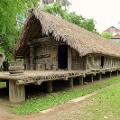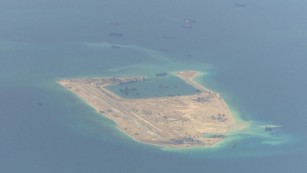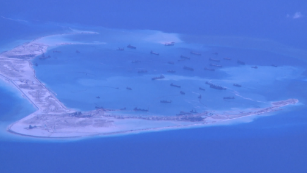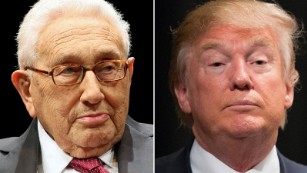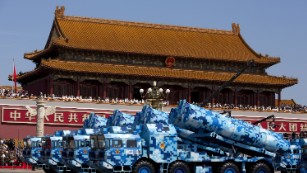Vietnam: From enemy to partner
Traveling to Vietnam with Sen. John McCain a few years ago, it was clear to me just how far the relationship between two former enemies had come.
Viewing the dark cells of Hoa Lo Prison -- the "Hanoi Hilton" that housed American prisoners of war -- invited memories of a long and bitter war. A statue of McCain that stands beside Truc Bach Lake in central Hanoi marks the spot where his A-4E Skyhawk was shot down in 1967. Visiting Haiphong recalled the intensity of conflict in that once-embattled harbor.
Among the population, however, and in the corridors of Vietnamese government, the gaze was toward the future and not the past. Now, as President Barack Obama prepares for the first presidential visit to Vietnam in a decade, he will encounter a country undergoing rapid change and seeking ever-closer ties to the United States. That's an opportunity Washington should not let pass by.

Richard Fontaine
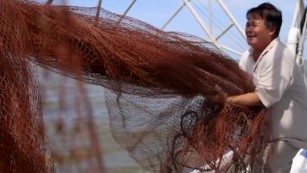
Vietnam to New Orleans: A legacy of survival 03:19
The pace of change in Vietnam presents a few historical ironies. One of these emerged a year ago when Nguyen Phu Trong, general secretary of the country's ruling party, made a visit to Washington. I attended an address Trong delivered at the U.S. Chamber of Commerce following his meetings at the White House. It's unlikely that I was the only participant who marveled at the sight of the Communist Party's general secretary -- who once studied in the Soviet Union and edited his country's Communist Review -- calling for free trade at a bastion of market capitalism.
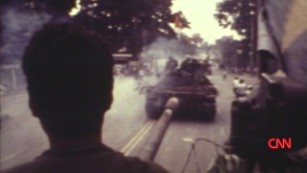
Vietnam War's final chaotic moments 01:37
Such is the new Vietnam. A member of the Trans-Pacific Partnership, it boasts an economy growing near 7% annually, with exports growing faster still. It has a large and increasingly connected youth population. And amid its growing regional heft, Vietnam has a leadership that, like the United States, watches China's assertiveness with growing concern.
South China Sea military bases growth revealed in images
That's why Obama's visit makes so much sense, and represents another step on the path from war, through normalization, and to partnership. But what happens after the president departs Vietnam will be more important still.
The administration is expected to announce a repeal of the ban on lethal arms sales to Vietnam, a welcome step that would build upon the 2014 decision to lift restrictions on sales of weapons related to maritime security.
Given Vietnam's legacy Russian systems and limited defense budget, Washington should help bolster its defense capabilities by ensuring that Vietnam receives assistance under the new, $425 million Maritime Security Initiative as well as other financing programs. Hanoi's acquisition of radars, surveillance drones, reconnaissance aircraft and other systems would enhance its maritime domain awareness and its ability to secure its littoral areas.
South China Sea: Is China upping the stakes?
The events of 2014, during which a Chinese offshore oil drilling rig sailed well inside Vietnam's exclusive economic zone, demonstrated the need for maritime-related assistance to Vietnam.
Before the rig withdrew, Chinese vesselsrepelled Vietnamese efforts to interdict its operations, rammed Vietnamese boats and succeeded in sinking one. Given China's threats to freedom of navigation and efforts to claim much of the South China Sea as its own, the United States has an interest in helping partners like Vietnam deter new provocations.
The ability of the U.S. Navy to access ports in Vietnam will likely be under discussion during the President's visit, and in its aftermath Washington should encourage the opening of those ports not only to American vessels, but also to those of other friendly militaries.
Do Clinton, Trump need Henry Kissinger?
Vietnam has established an international facility at Cam Ranh Bay, one of Southeast Asia's finest deep-water ports and a major U.S. military hub during the war. Washington should seek the ability to operate out of Cam Ranh and encourage its further development as a regional locus for naval operations. Thevisit earlier this year of two Japanese destroyers is but one example of what is possible.
Opinion: China's military in bid for superpower status
Vietnam has a broader role to play in the Pentagon's recent embrace of networked security in Asia, a vision that supplements America's four bilateral alliances with a web of connections among partners and allies. Over the past year alone, Hanoi has beefed up defense ties with Japan, Australia, Singapore and the Philippines. These developments have a stabilizing effect on a region in which China is throwing around its ample weight.
In addition to deepening security ties, there are other items that should fill the bilateral agenda after Obama departs Vietnam. The U.S. Congress must either approve the Trans-Pacific Partnership agreement or suffer a major setback to America's strategic position in Asia. Washington should be vocal both publicly and privately about human rights abuses in Vietnam, and push for greater religious freedom, basic liberties, and the release of political prisoners.
News Courtesy: www.cnn.cm

